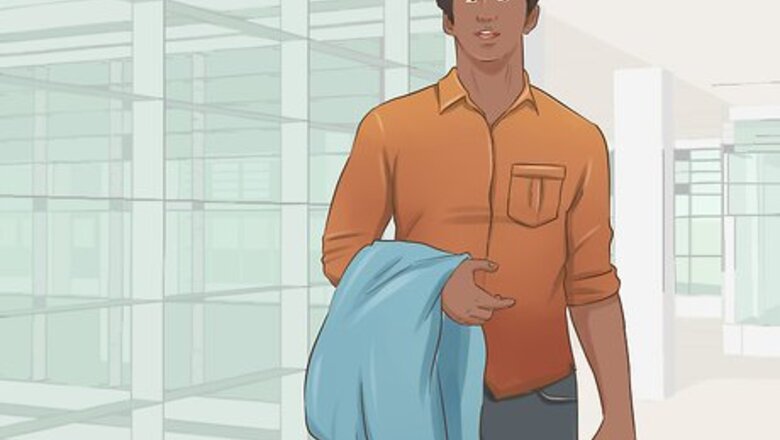
views
Seeking Immediate Solutions

Get out of your current environment. Try to step away from any environment where you feel it's difficult to control your urges. If you are at home and feeling a compulsion to masturbate, for example, try taking a quick walk to the store. If you can’t leave your current environment (if you’re at work, for example), try talking to another coworker or taking a break. It might also be helpful to have someone to help keep you accountable, such as a trusted friend or even a therapist.
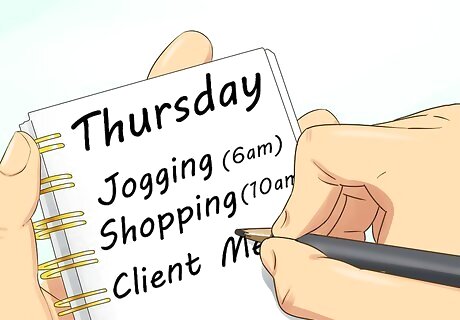
Keep a to-do list in your pocket. Write down all the tasks, errands, or things around the house you need to do today. If you are feeling the need to engage in a compulsive behavior, look at your list and distract yourself with another activity. If you think it is unlikely that you will be able to do something productive when you experience a strong sexual urge, then try to keep an easy distraction on hand, such as a good book or a puzzle you can work on.
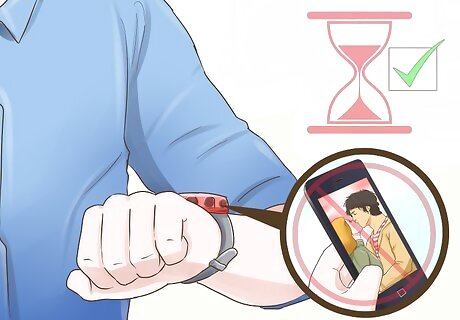
Postpone your behavior until a later time. Putting off the compulsive behavior makes you think about your behavior before committing to it. It also helps you tolerate uncomfortable feelings and distress. Set a time goal for yourself. Try telling yourself, “I’ll watch porn in an hour,” or whatever the largest amount of time you can commit to postponing may be. You may only be comfortable postponing your behavior for one minute. That’s okay, give yourself one minute. After your allotted time is up, you can choose to postpone again, or engage in your behavior. But choose to postpone whenever possible, even if it is just another minute. After a while, you may be able to extend the amount of time you go without feeling the need to engage in the behavior.
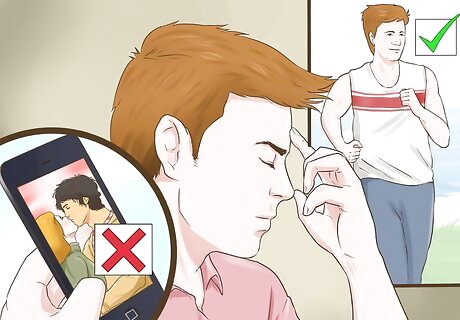
Make a list of all of the negative consequences of your behavior. Making a list of all the risks or negative consequences associated with the behavior may help to stave off sexual urges as well. Write down all of the risks and potential consequences of acting on your behavior. Carry the list with you at all times and review it when you experience a sexual urge.
Avoiding Triggering Situations
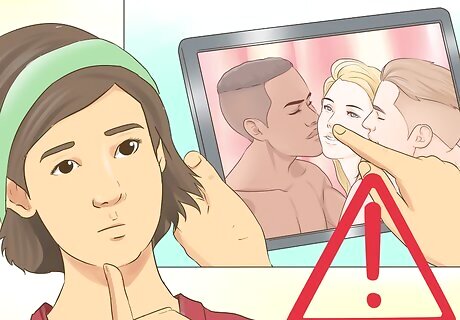
Identify the triggers for your sexual urges. Spend some time thinking about your behavior and what leads you to have sexual impulses. Think about triggering stimuli, the time of day, as well as the environment in which you tend to have these urgings. See if there are any patterns that emerge in your behavior. If you have discovered a pattern, figure out how you can break the cycle with new behaviors or lifestyle changes. For example, you may notice that you feel most overwhelmed with sexual urges in the evenings and on weekends -- when you are not working and don’t have anything to do. You may decide to take up a new hobby in order to keep your mind off sex. Perhaps you are triggered by stimuli in your environment. If you find yourself aroused by steamy love scenes in movies, for example, it may be best to watch other kinds of non-romantic films until you can get a better grip on your urges. Consider keeping a journal of your actions and behavior leading up to sexual urges. A journal can help you identify triggers and patterns.
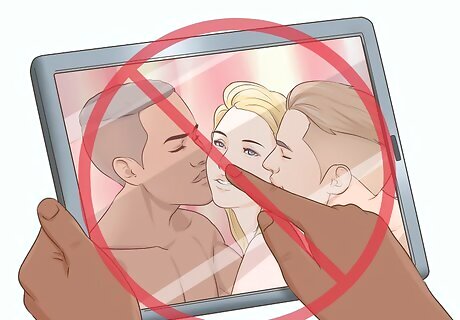
Avoid pornography. Pornography has turned into a billion-dollar industry, and viewing it is more acceptable than ever. This makes pornography difficult to ignore, but as it rewards sexual urges, it is best to avoid viewing it if you are prone to troublesome sexual urges. You may wish to put browser extensions or parental controls on your computer to make it difficult to access pornography on your computer. You could even have a friend or your partner install it and not inform you of the password. Throw away any pornographic magazines, books, or movies you may have.
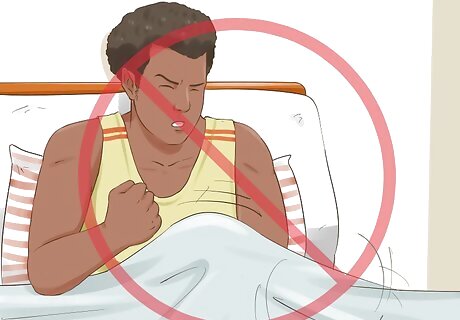
Consider avoiding masturbation. You may wish to avoid masturbating for a set amount of time to help you get your sexual urges under control. For some people, abstaining from masturbation may be more important than for others. You may wish to get suggestions about what would be appropriate for you from a therapist. For example, if you feel you masturbate compulsively, it may be a good idea to commit to abstaining from masturbation for a set amount of time. This may also be appropriate if you have a porn addiction. For other people, masturbation may help you improve intimacy and improve your sexual health.
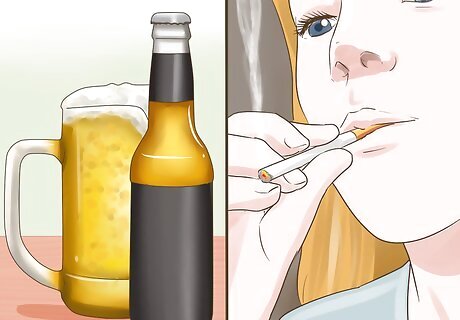
Abstain from drugs or alcohol. Drugs and alcohol can cause you to lose your inhibitions, including your sexual control. Stay away from parties and scenarios you think might be problematic. Being under the influence of drugs and/or alcohol makes it more likely that you will engage in risky sexual activity.

Find effective methods to control your thoughts. Look for mental techniques you can use to help “change the subject” in your brain, when you begin to feel overwhelmed by sexual urges. You may wish to talk to a therapist about ways to manage obsessive thoughts. Some techniques may include: Clearing your mind through meditation or mindfulness. Don't give up if this is very challenging at first! It is for most people. Have faith that it will get easier with practice. If you have a spiritual practice, you could also try prayer to help you focus your mind and get spiritual support. Shifting your attention back to your present task. Acknowledge your sexual urges by telling yourself something like, “These are only thoughts. Right now they are not helping me, but hurting me.” Then take a few deep breaths and shift your focus back to your current activity.
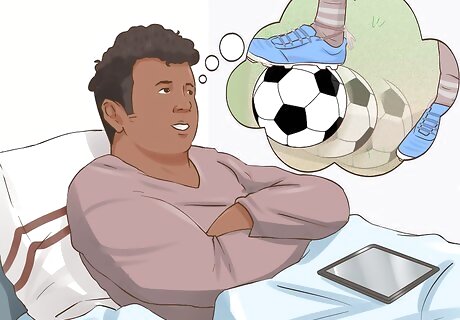
Minimize stress. Sometimes obsessive thoughts tend to creep up on you when you are feeling overwhelmed and stressed. If you find this to be true for you with your sexual urges, figure out ways you can live a less stressful life. For example, you may find yourself obsessively thinking about sex on days when you are running late for work. Experiment with earlier wake-up times or allowing extra commute time to see if your thought patterns change. Make a list of various responsibilities you have and see what you can eliminate or delegate. Try to work smarter, not harder.
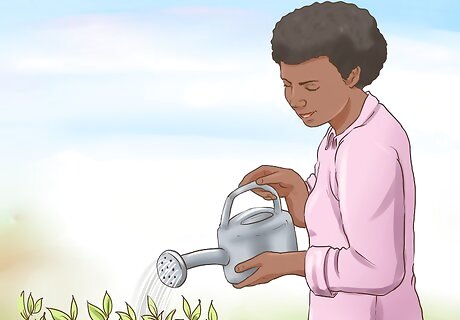
Keep yourself busy. Staying busy helps keep your mind preoccupied and focused on things other than sex. Take up a new hobby or fill your social calendar with activities with friends. Channel your sexual energy into a creative project. Working through difficult emotions through one’s imagination is a form of sublimation, or taking a “negative” or unwanted emotion and turning it into something more positive or useful. Find a hobby that takes you away from triggering stimuli. For example, if you have a tendency to view porn at home alone, find a hobby that takes you out of the house and surrounds you with people, so that you are not in a triggering environment.

Exercise. Physical activity is one of the healthiest ways to control and manage a range of feelings and emotions, including the urge to have sex. Exercise regularly to combat sexual energy, or head to the nearest park or gym as soon as you start experiencing these feelings. Consider setting a fitness goal on which to focus. For example, you may decide to lose weight, lift a certain amount at the gym, or train for a race or long-distance bike ride. When you are not working out, you can spend time researching how to achieve your particular fitness goal, rather than be distracted by sexual urges.
Talking to Others Who Can Help You
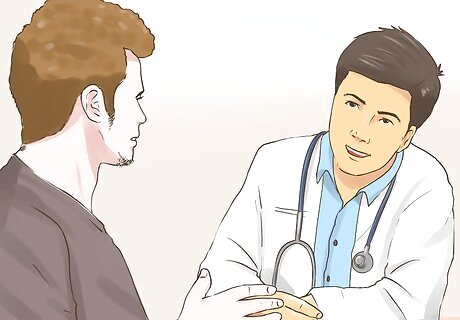
See your doctor. Consider having an exam to rule out any physical problems that may be causing your sexual urges. Sometimes, illness or disorders can disrupt hormones and can make you feel hypersexual. Your doctor may ask you to see a psychologist or psychiatrist to get you evaluated for any mood disorders. For example, a sudden and unusually high desire for sex could be a symptom of bipolar disorder. Be honest with your doctor about your sexual urges and express your concerns. Estimate how many times a day you think about sex or act on a sexual urge. For example, you might say, “I watch porn and masturbate four times a day.” Your doctor can help you determine if your behavior is problematic or within the range of normal.

Talk to your partner about your feelings. If you are currently in a relationship, talk to your partner about your sexual urges. If you are feeling sexually unsatisfied in your relationship, be honest and discuss how the two of you could make an effort to prioritize sex. You could say, “I am wondering if I am having so many urges because we haven’t really been having sex lately. What do you think? Are you happy with our sex life?” Understand that you and your partner may have different levels of sex drive. You may want to have sex more frequently than your partner. This doesn’t make either of you wrong or right, it is just how you were made. Be honest with yourself and each other about if this can be managed or if this is a deal-breaker for the relationship. Talk to your partner if you feel compelled to cheat on them. Be honest, even though it may be a difficult conversation. You could say, “I know this is painful to hear, but I am having sexual urges toward other people. I am telling you this because I want to be honest, and I am struggling.” Consider seeing a couples counselor with training in sexual addiction or sexual problems to help you navigate your relationship. Talking to a trusted friend may also be a good option. They can help to hold you accountable for your goals, listen to you when you need to vent, and provide objective feedback.

Get a spiritual perspective. If you are concerned about controlling your sexual urges because of the faith you practice, consider seeking guidance from a spiritual leader in your faith community. Consider talking to clergy, a pastoral care leader, or a youth leader in your congregation. Try not to be embarrassed. Most likely, leaders in your faith community have heard it all before and know how to address concerns. You could indicate your embarrassment when you ask to speak to them; for example, “I’ve been struggling with something kind of personal and embarrassing. Would there be a time I could talk to you in private about it?” Ask your religious leader for resources that may be able to help you understand your struggle from a spiritual point of view.
Seeking Help for Compulsive Sexual Behaviors
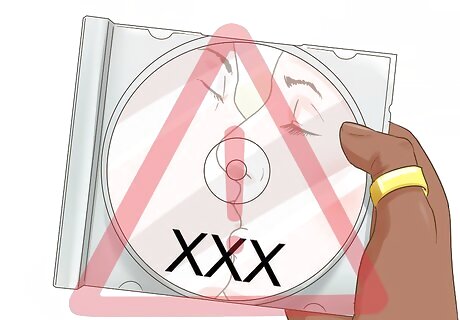
Be aware of warning signs of sex addiction. Sex addiction, or compulsive sexual behavior, is considered such when your sexual urges and impulses begin to negatively impact your life. If you begin to feel overwhelmed by your sexual impulses, consider finding a counselor who can help you develop a treatment plan. Some warning signs to look out for include: Considerable money spent finding ways to fulfill your sexual needs (for example, buying pornography, visiting strip clubs, or hiring sex workers) Feeling driven to engage in sexual behaviors, but deriving no pleasure from them Damage to interpersonal relationships, including those with intimate partners Finding yourself having to apologize often for your behavior. Engaging in risky sexual behaviors that can cause both physical and interpersonal problems (for example, having sex without a condom, or having sex with an employee) A large amount of time spent searching for sexual gratification, and/or a loss of productivity related to such
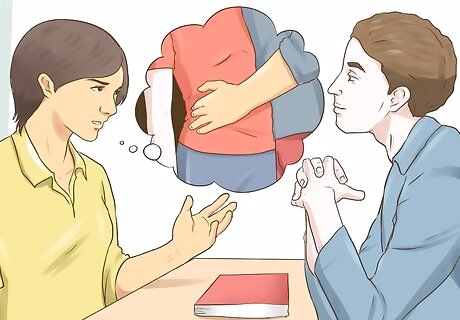
Seek counseling. Consider finding a counselor who specializes in sexual addiction. To find a therapist, you may wish to consult your doctor, contact your employer’s Employee Assistance Program, ask for a referral from your local community health agency, or do your own online research. You may want to find a counselor who has a S-PSB (Specialist in Problematic Sexual Behaviors) or CSAT (Certified Sex Addiction Therapist) certification. These certifications show that the counselor has received training in sexual behavior causes and treatments. Therapists are trained to be open-minded, nonjudgmental, and accepting of other people’s problems. Do not feel embarrassed or ashamed that you need to seek professional help. Therapists are also bound to confidentiality laws, and will protect your privacy, so long as you are not at risk of harming yourself or others, or you report abuse or neglect.
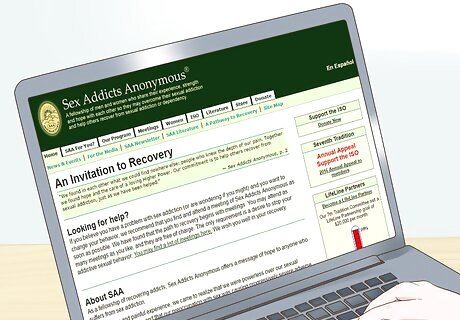
Attend a support group meeting. There are several sexual addiction support groups that all have similar, 12-step program models (similar to the model of Alcoholics Anonymous). These meetings can provide you with support, hold you accountable in your recovery, and give you a structure to work toward and meet your goals. To find a meeting location near you, you can visit these groups’ websites: Sex Addicts Anonymous: https://saa-recovery.org/ Sex and Love Addicts Anonymous: https://saa-recovery.org/ Sexaholics Anonymous: https://www.sa.org/



















Comments
0 comment